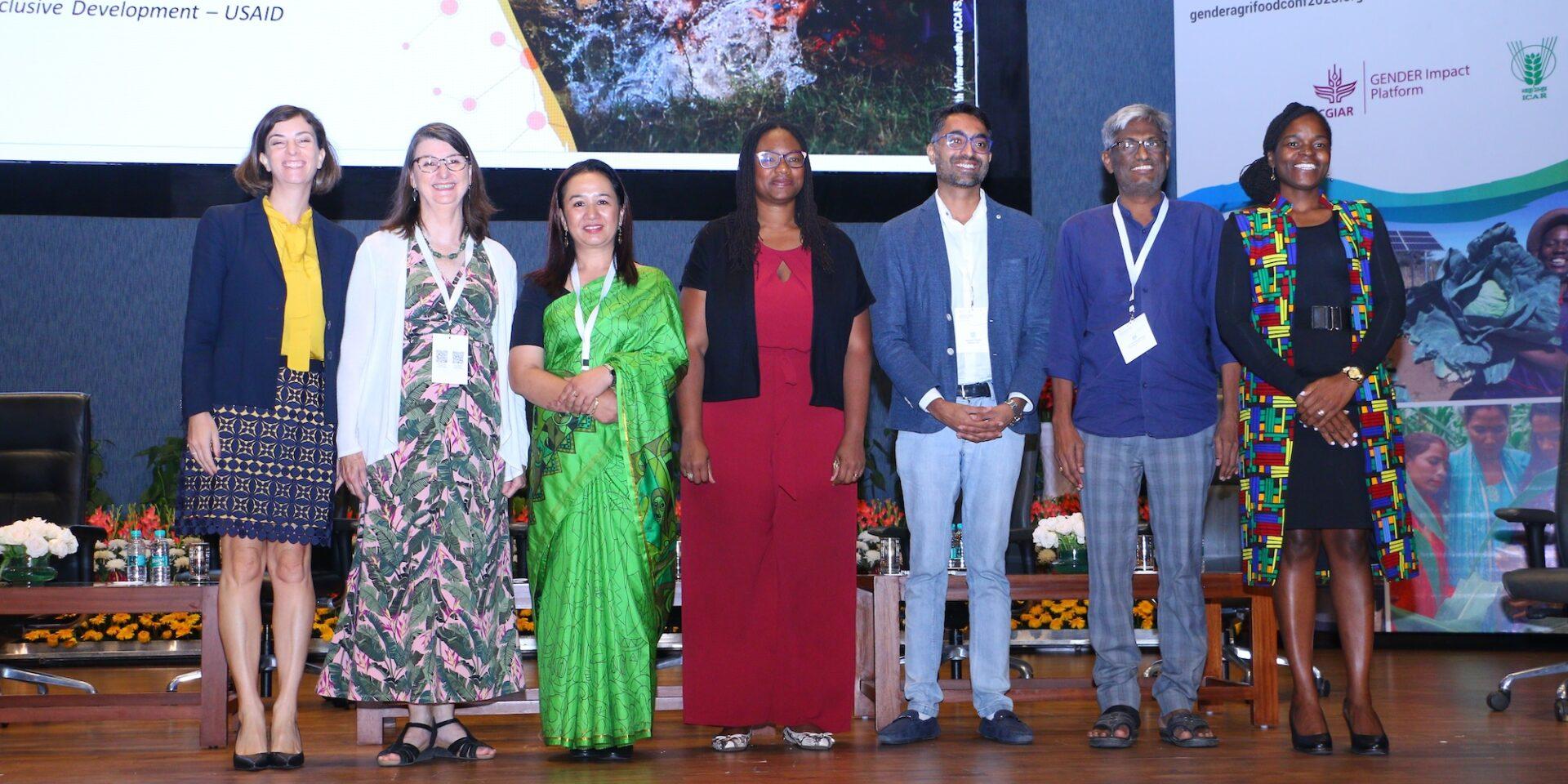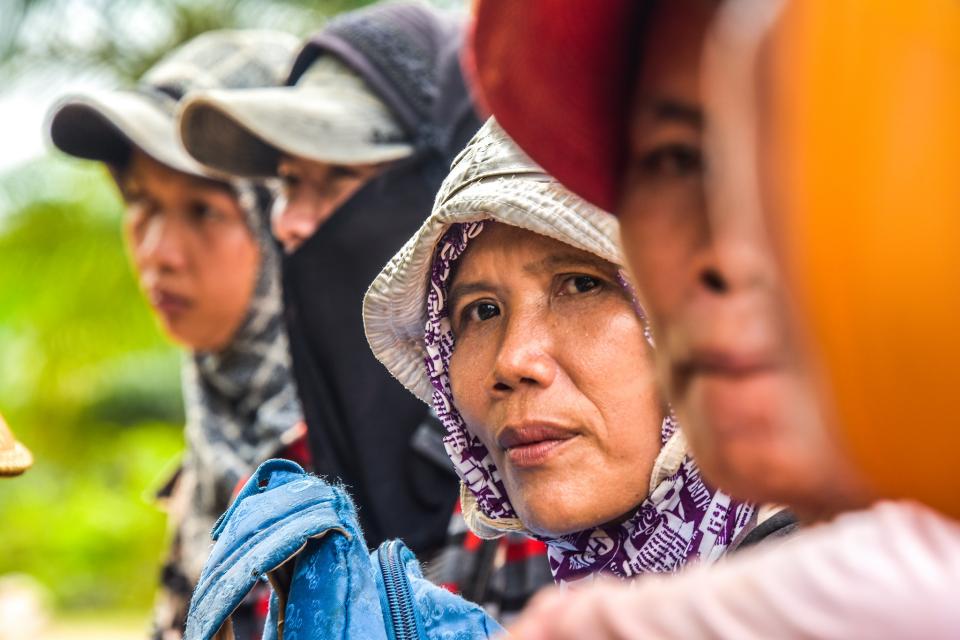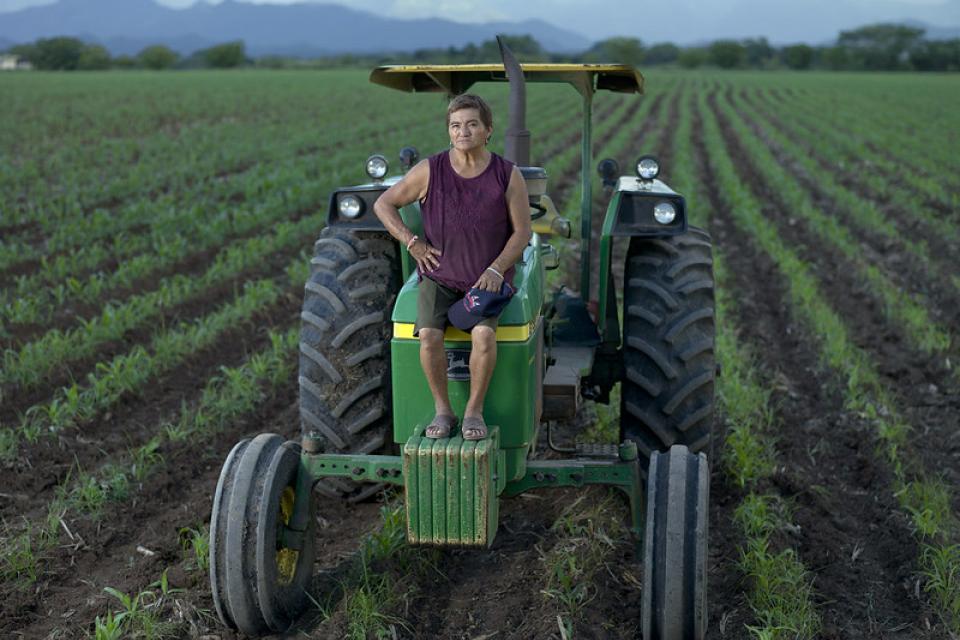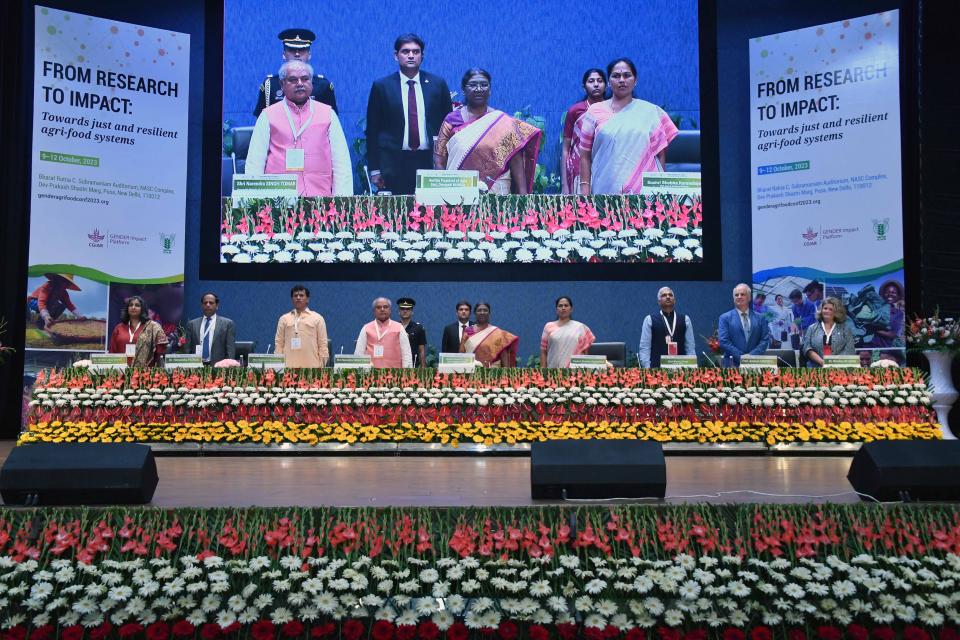Experts call for massive shift in gender research for sustainable agri-food systems

Experts and development leaders in agriculture have called for a shift in how research is implemented to achieve more resilient agri-food systems. While speaking at a plenary on “From Research to Impact: Towards agri-food systems transformation” at the CGIAR GENDER Research Conference in New Delhi, India, the leaders agreed that effective research must reflect the realities on the ground to be transformative.
This blog post was authored by Joan Onyango as part of the CGIAR GENDER Impact Platform training on telling stories about agricultural solutions that work for women. This training took place, in part, during the 2023 CGIAR GENDER conference on October 9-12, 2023, in New Delhi, India. The blog post was first published by AWARD, but it is re-posted in full below.
--
Held on October 12, 2023, the plenary saw contributions from leading agriculture and development experts, including Dr. Lauren Phillips, Deputy Director, Inclusive Rural Transformation and Gender Equality, United Nations Food and Agriculture Organization (FAO), Dr. Meredith Soule, Division Chief, Inclusive Development, The United States Agency for International Development ( USAID), Dr. Michèle Mbo’o-Tchouawou, Deputy Director, Programs, African Women in Agricultural Research for Development (AWARD), Ms. Neena Joshi, Interim Senior Vice President, Asia, Heifer International, Mr. Nishant Gupta, Social and Environmental Impact Advisor, Walmart India and Dr. G.V Ramanjaneyulu, Executive Director, Center for Sustainable Agriculture.
The plenary outlined five strategies needed to make gender in agri-food systems research more impactful, including gender-responsive policies, gender- disaggregated data, research collaboration, capacity building, collective action, and deliberate investments.
While speaking at the plenary, Dr. Mbo’o-Tchouawou emphasized that we urgently need to investigate how we use and apply research to support the specific needs of women and men along the agricultural value chain. She stressed that researchers and policymakers must speak one language for research to achieve impact on the ground.
“Impact is long term. So then, we must really look at the research we do to achieve our desired impact,” said Dr. Mbo’o-Tchouawou.
Drawing from the recent FAO report on the Status of Women in Agri-food Systems, Dr. Philips highlighted that even though more than 75 percent of agricultural policies analyzed by the report recognize women’s roles and/or challenges in agriculture, only 19 percent had gender equality in agriculture or women’s rights as explicit policy objectives.
“This is clearly an area where we need to do much better if we want to have a genuine impact,” she said.
While discussing the meaning of research for impact, Ms. Soule spotlighted the significance of gender-disaggregated data in closing the productivity gap in agriculture. She pointed out that research must look at different kinds of households in varied places to better inform our agri-food systems work.
The panel also reiterated that it is imperative to align smallholders with the right market to improve sustainability, create more ambitious approaches and initiatives to addressing gender, be more intentional in addressing social norms, and scale up expenditure on gender and projects that address women empowerment.
“We must invest in people, and we must invest in women. Personal transformation and growth mindset are important for upscaling sustainable innovation and investment”, concluded Ms. Joshi.


